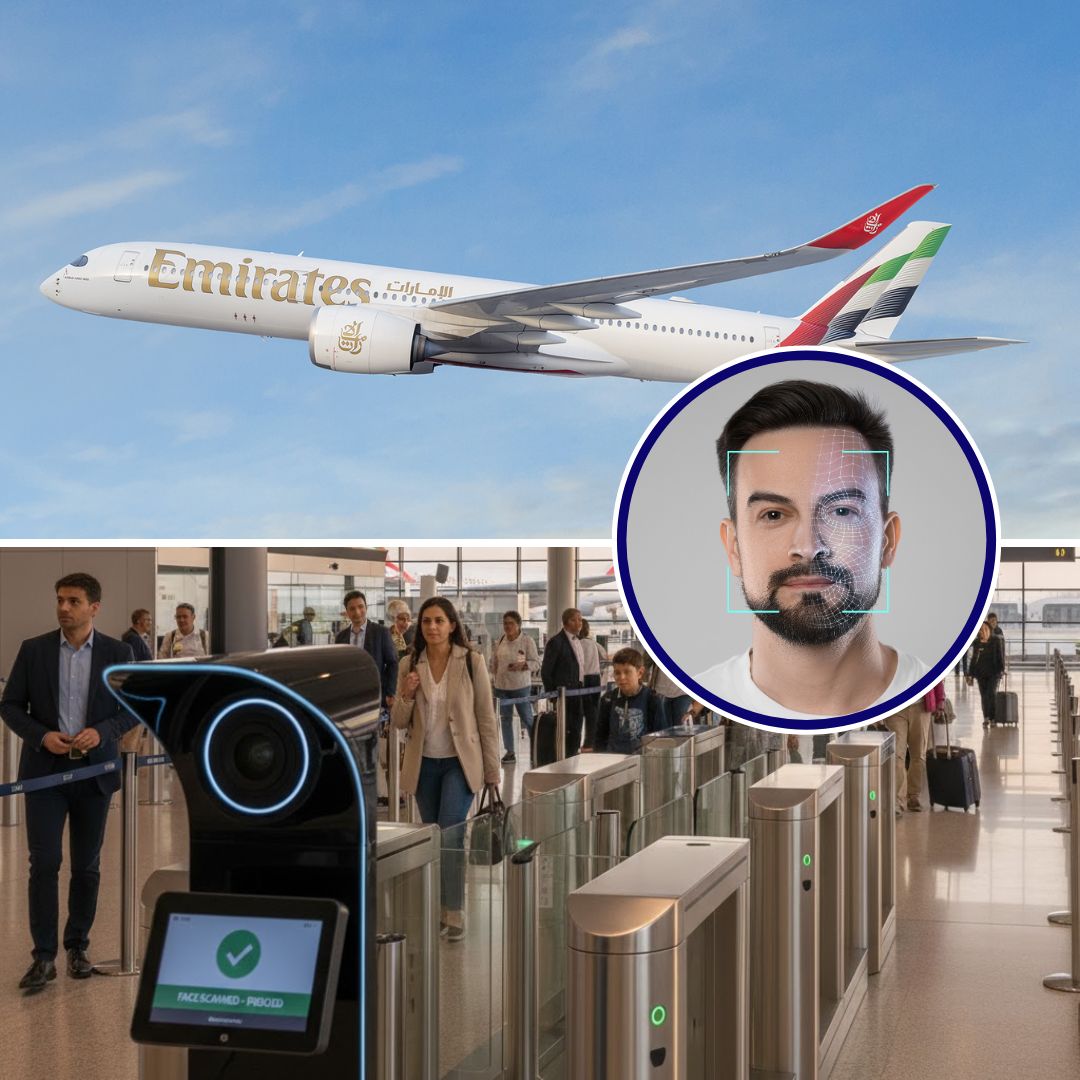Emirates has invested AED 85 million (around US$23 million) to install over 200 facial-recognition cameras across Terminal 3 at Dubai International Airport. This biometric system enables passengers to travel through check-in, immigration, lounges, and boarding without showing passports or boarding passes.
Registered customers, residents and visitors alike, can speed through dedicated biometric zones by simply using facial recognition after registering via the Emirates app or at airport kiosks. Officials claim the system enhances efficiency, while stressing data security and privacy protections.
Transforming Travel with Biometric Technology
Emirates’ facial-recognition technology is designed to create a seamless and contactless journey for passengers at one of the world’s busiest airports. The cameras recognize travellers from up to one meter away, allowing them to walk swiftly through checkpoints without manual document checks.
Adel Al Redha, Emirates’ Deputy President and Chief Operating Officer, said this innovation reflects the airline’s commitment to speed, accuracy, and customer-centricity: “Since 2017, we have collaborated with the General Directorate of Identity and Foreigners Affairs, Dubai (GDRFA) to ensure a world-class, seamless experience.” This biometric path now covers check-in kiosks, immigration smart gates, lounge entries, boarding gates, and aircraft boarding within Terminal 3, with plans for further expansion.
Passengers can enrol by consenting to biometric data use through the Emirates app, airport self-service kiosks, or check-in desks. Eligibility for the programme requires being at least 18 years old and a member of Emirates’ Skywards loyalty programme. For returning residents or frequent visitors, Emirates can match existing biometric data held by GDRFA to streamline their travel. New visitors are provided temporary biometric profiles that become integrated upon entry to the UAE.
Dubai’s Vision for Smart Travel and Privacy Assurance
This development is part of Dubai’s broader Vision 2031, aiming to integrate cutting-edge digital infrastructure and smart technology into public services, including travel. The collaboration between Emirates and GDRFA highlights Dubai’s reputation for efficiency, hospitality, and digital governance.
Lieutenant General Mohammed Ahmed Al Marri, director general of GDRFA Dubai, stressed the commitment to using AI and biometrics responsibly: “Together, we are shaping a seamless travel experience that embodies the UAE’s values of innovation and trust.”
Despite these assurances, privacy concerns persist globally around facial recognition technology. Independent watchdogs advocate for transparency and oversight to protect travellers’ biometric information from misuse or data breaches. Emirates and GDRFA affirm that all biometric data is encrypted and handled in accordance with strict data protection frameworks.
The Logical Indian’s Perspective
While the introduction of biometric travel enhances convenience and operational efficiency, it also brings into focus the broader question of balancing technology and privacy. Innovation must be matched with accountability and openness to build public trust.
As travel becomes more automated, it is critical that governance frameworks evolve to protect individuals’ data rights. The Logical Indian urges stakeholders to prioritise ethical standards in biometric use, ensuring such technologies empower travellers without compromising privacy.












